QuestionHi Thea,
I am a first time owner to a male beardred dragon found him in April 2011. He seems to be about a year or two years old and from what our reptile shop said he is in very good condition. I have noticed lately that his urine has a pinkish/brown jelly like colour to it(its still white with this colour).... is this normal or should I be concerned?
I used to bath him every day but how i only bath him when he feels like it which is not all the time but maybe once a week.
Is he dehydrated?
Oh I live in South Africa.
Look forward to your advise.
AnswerHi Kim,
Urates are usually a very pale yellow or cream colour which can become a more intense yellow to pale orange with dehydration. Diet can also affect the urate colour. The stool and urates are held in a common chamber (the cloaca) before being excreted so colour from the stool portion can transfer to the urates. Deeply coloured vegetables like orange squash or red fruits like raspberries can have a startling affect on both the stool and urate colour. Coloured commercial pelleted diets will do the same thing.
A reddish/orange tinge in the urates can also appear during breeding season in mature animals but noting that you are in your mid-winter I would think that reason is unlikely. Breeding season usually starts in the spring.
There are a few unpleasant reasons why urates may be off colour, such as kidney or liver problems but those are less likely in an otherwise healthy appearing, young animal like yours. Brown urates are a symptom of lead or other heavy metal poisoning in birds but again, that problem is quite unlikely to occur with reptiles.
Parasites can reportedly cause a change in urate colour but they would normally be present with other symptoms such as runny, foul-smelling stool, weight and appetite loss. Both coccidia and pinworms are very common in bearded dragons.
These colour changes are often temporary and usually diet or hormone related but they are something to keep an eye on. If the colour persists or intensifies with no obvious explanation then having a vet check him over would be your best option.

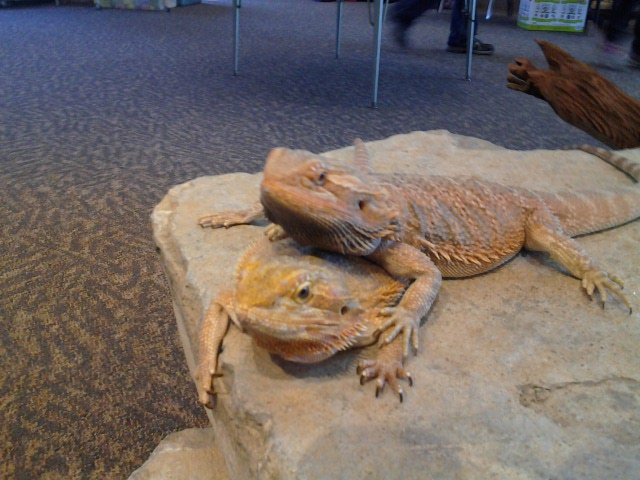 bearded dragon breeding
Question
Delylah and Spike
I have a 4 year old f
bearded dragon breeding
Question
Delylah and Spike
I have a 4 year old f
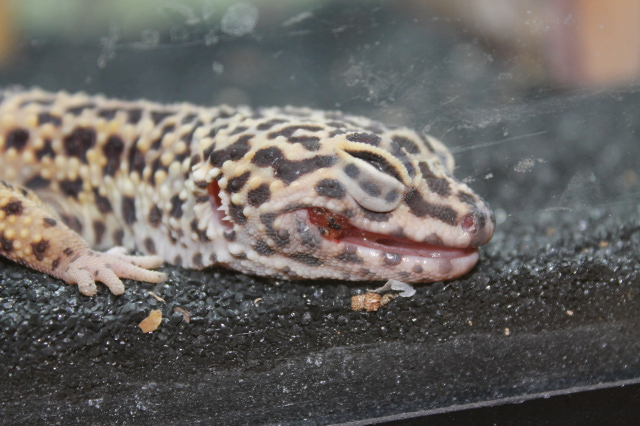 Leopard Gecko Mouth Problem
Question
side view open mouth
Hi, I have a
Leopard Gecko Mouth Problem
Question
side view open mouth
Hi, I have a
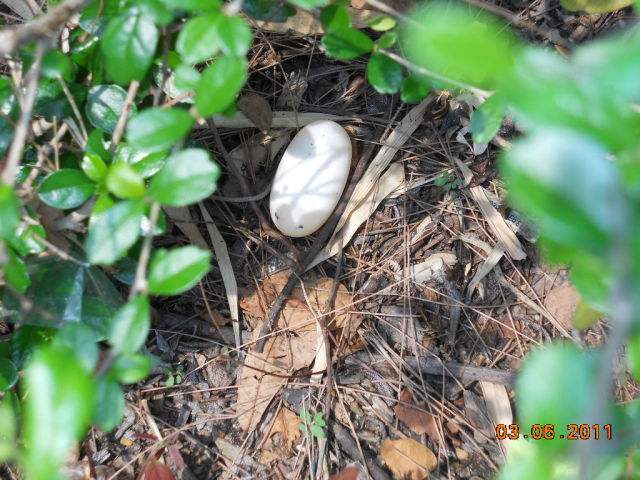 Snake egg identification
Question
Snake Egg
This egg was found in the American E
Snake egg identification
Question
Snake Egg
This egg was found in the American E
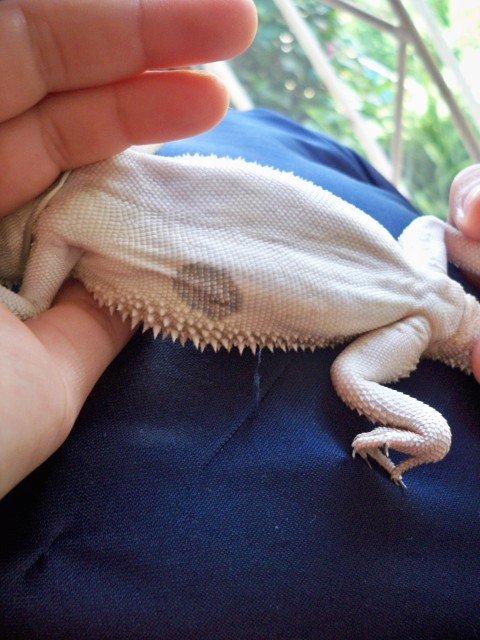 black patches on bearded dragon
QuestionQUESTION: I am worried because I have noticed t
black patches on bearded dragon
QuestionQUESTION: I am worried because I have noticed t
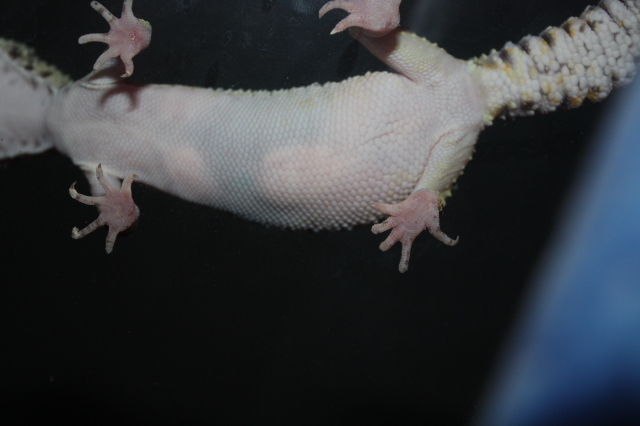 Gravid Leopard Gecko?
QuestionBelly
QUESTION: Hello,
Im pretty new to
Gravid Leopard Gecko?
QuestionBelly
QUESTION: Hello,
Im pretty new to